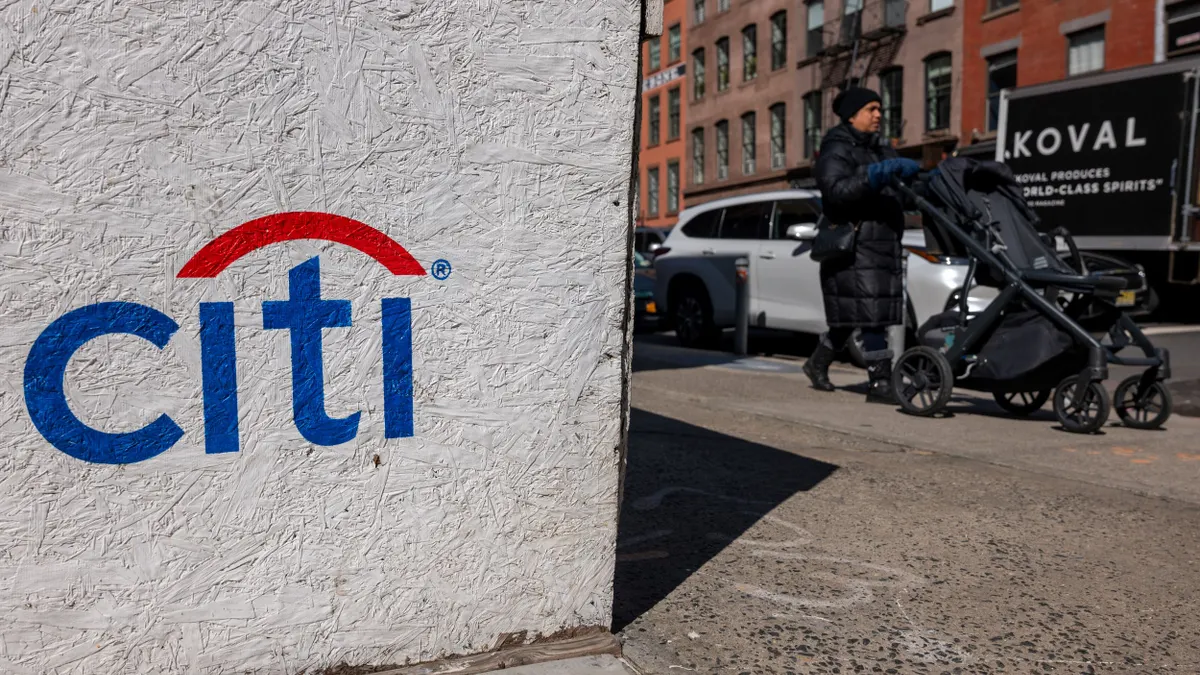LAS VEGAS — Federal Deposit Insurance Corp. (FDIC) Chair Jelena McWilliams said U.S. bank regulators are coordinating policies for how and under what circumstances banks can engage in activities involving crypto assets and stablecoins.
The chairwoman, who was speaking at the Money20/20 conference on Monday, shared details about the interagency "crypto sprint" involving the FDIC, the Office of the Comptroller of the Currency (OCC) and Federal Reserve that was first announced in May.
The objective, she said, is to provide clear guidance to the public on how existing rules and policies apply to crypto assets, what types of activities are permissible and what supervisory expectations the agencies have for banks that engage in cryptocurrency activities.
The agencies plan to issue a series of policy statements in the coming months, she said.
"As a regulator, my job is not to make predictions about the future of crypto assets," said McWilliams, whom the Trump administration appointed to lead the FDIC in 2018. "My job is to provide clear rules of the road — to allow innovation to flourish, while mitigating risks. If we fail to do this, we risk stifling innovation and forfeiting America’s leadership in developing world-changing technologies.
McWilliams highlighted the benefits of stablecoins to financial institutions and consumers, saying the agency has seen an increase in the use of stablecoins, primarily to facilitate converting crypto assets into fiat currency.
Other uses, she said, include using stablecoins to serve as a mechanism for retail payments.
"We have also seen banks establish limited payment networks for commercial customers to transfer funds using tokens in near-real time," she said. "Stablecoins can offer many potential benefits ... a faster, cheaper, more efficient mechanism for making payments than legacy systems ... ‘programmable’ payments that happens automatically based on the occurrence of a specified event, which could lead to better management of debt repayment."
But digital assets come with risk, she said.
"Stablecoins also present certain risks, specifically if one or more were to become a dominant form of payment in the United States or globally," she said. "This could lead to substantial sums of money migrating out of insured banks with significant ramifications for credit creation, financial stability and bank funding."
To balance these risks with the benefits, McWilliams said stablecoins should be subject to "well-tailored government oversight."
"If issuers purport to have reserves available on demand to satisfy withdrawal requests, regulators should have authority to ensure the funds are there, specifically if such issuers are large enough that a stablecoin ‘run’ could result in financial instability," she said, adding other potential risks regulators should be cognizant of include ensuring operational resilience and preventing money laundering.
"Establishing clear regulatory expectations will be paramount to give this market an opportunity to grow and mature in a responsible manner," she said.
The chairwoman’s remarks come as the largest bank regulator, the OCC, has experienced somewhat of a fluctuation in the way it plans to address banks’ activities in the digital asset space.
Despite the groundwork laid by crypto advocate and former Acting Comptroller Brian Brooks, which includes issuing guidance regarding banks' use of stablecoins and blockchains, as well as an interpretive letter clarifying that national banks are allowed to provide cryptocurrency custody services, the regulator’s current acting head said he intends to revisit his predecessor's actions.
Under review are the OCC’s interpretive letters related to digital assets or custody, crypto charters in the pipeline, and crypto charters that have been conditionally approved, Acting Comptroller Michael Hsu said in June.
During her address at the trade conference, McWilliams warned about increasing competition from abroad, "including from regulatory systems that focus intently on promoting technological innovation and taking the mantle from the United States."
"Regulators should be agile and open to risk mitigation for new technologies ... and not throw out the baby with the bathwater," she said. "That proverbial baby, with proper care, may just grow up to be a responsible, productive and, perhaps, brilliant adult."


















